Shaka, Mzilikazi, Ndebele, the Gukurahundi and Robert Mugabe. The long shadows from the past.
With the recent coup in Zimbabwe or regime change with military assistance, I found myself wondering about the whys and wherefores, on the surface it seems fairly easy to explain, an old despot not performing as he should be and a very unsuitable candidate waiting in the wings. Is it really so simple? Why did Robert Mugabe cling to power when most other people would have retired? He had amassed a vast fortune, so why not enjoy the last days in comfort?
Looked back on Zimbabwe’s history, may explain much. My take on matter is maybe somewhat simplistic but hopefully it will help to make the situation clearer.
During the late 1820’s Shaka was rampaging over large areas of Natal, one of his former lieutenants, Mzilikazi had fallen out with the great chief and knowing that he could not hope to defeat Shaka in battle had made the prudent decision to gather up his clan and flee. He travelled long and hard displacing many but also incorporating others into his growing army, he ended up in the Transvaal. There was to be no peace, for in 1836 the Voortrekkers arrived and Mzilikazi made a final trek into present day Zimbabwe in all he had covered over 800 Km. There he carved out the Matabele Empire at the expense of the Shona Tribe.
Mzilikazi
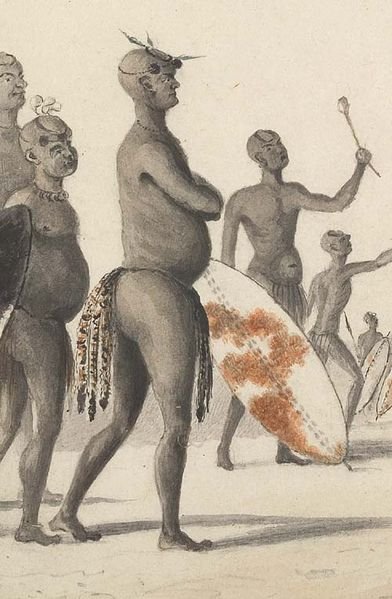
Image Source
It is with this background in mind that we must look at Zimbabwe today. Even though the events described earlier took place a long time ago the memory of the Matabele incursion still casts a long shadow today. In modern times, at the end of the colonial period the early black nationalist movement, "The Zimbabwe People's Revolutionary Army" ZAPU, split in two in 1963. The "Zimbabwe People's Nationalist Union" ZANU was formed and though they had broadly the same objectives they gradually drifted apart. ZANU recruited mainly from the Shona groups whereas ZAPO recruited from the Ndebele (Matabele) in the west. Old rivalries and memories run deep, there was no love lost between these groups.
ZANU - Robert and Grace Mugabe 2013
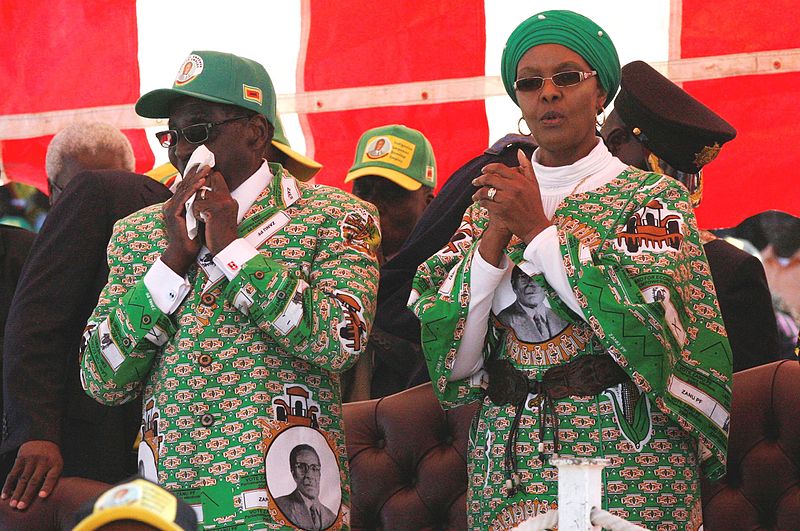
Image Source
ZAPU - Joshua Nkomo's Party
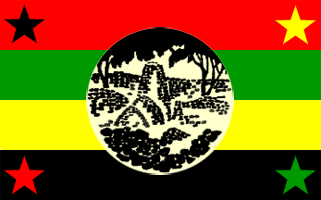
Image Source
Independence
After the split the ZAPU army, Zimbabwe People’s Revolutionary Army (ZIPRA) and the ZANU army, the Zimbabwe African National Liberation Army (ZANLA) found themselve's increasingly in competition. In 1980 Southern Rhodesia formerly became Zimbabwe and white rule ended. The stakes were dramatically increased. ZIPRA attacked civilian settlements around Bulawayo destabilising the area to improve ZAPU’s chances in the upcoming elections. The elections saw ZANU winning 57 of the 100 seats and Robert Mugabe became the new prime minister of Zimbabwe.
The situation further deteriorated in November 1980, a two day pitched battle was fought between ZIPRA and the Zimbabwe National Army. At the heart of these troubles were the old tribal rivalries dating back to the days of Mzilikazi’s invasion of Shona territory. Many ZIPRA cadres defected after these battles as the situation was becoming a matter of survival.
Into this mix we must add another factor; the South African government at that time was also actively involved in destabilising Zimbabwe society.
Joshua Nkomo - African Nationalist and leader of ZAPU
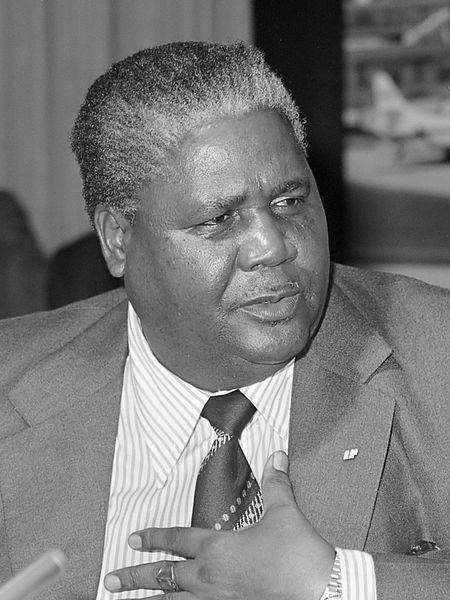.jpg)
Image Source
In October 1980, Robert Mugabe signed an agreement with North Korean president Kim Il Sung to train a brigade in the Zimbabwe army. This brigade which later became the infamous 5th Brigade had the job of combatting so-called “malcontents” from Zimbabwe society. This brigade was called Gukurahundi which translates to “the early rain which washes away the chaff, before the spring rains”.
As there are no images available, I have used this image to illustrate the atrocities.
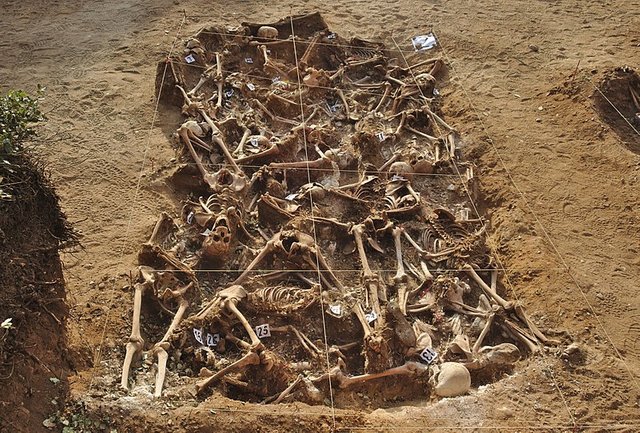
Image Source
In 1982 their training was complete, under Colonel Perence Shiri they were to bring the rivalry to a bloody climax. Wearing their distinctive red berets they initiated a brutal campaign in northern Matabeleland, ZIPRA and ZAPU leaders were summarily executed, many died by being burnt alive in their kraals. The death toll from 1982 to 1984 has been estimated to be in the region of 20,000. This brigade was under the direct control of Robert Mugabe, even the radios they used were not on the normal military frequency. For 33 years he has lived with the knowledge that if he ever lost power he could be held responsible for this human tragedy. It is no wonder that he has hung on to power.
Emmerson Mnangagwa
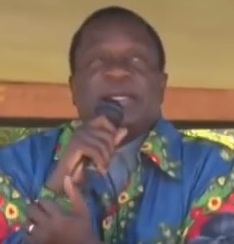.jpg)
Image Source
Recently when the Vice-President of Zimbabwe and ZANU leader Emmerson Mnangagwa fled to South Africa, word came out from ZAPU sources that he had spoken to a BBC reporter and absolved himself from any involvement in the Gurukahundi killings. He is said to have held Robert Mugabe as being responsible. He is now back in Zimbabwe and has been appointed as new prime minister. Interestingly, Robert Mugabe has been assured of protection from prosecution. How will this play out? Only time will tell. The long shadow from the past still darkens those it touches today. From Shaka and Mzilikazi to Kim Il Sung and Robert Mugabe it has affected countless thousands, lets hope for some light to dissipate the darkness.
Mzilikazi (meaning) - The Path of Blood
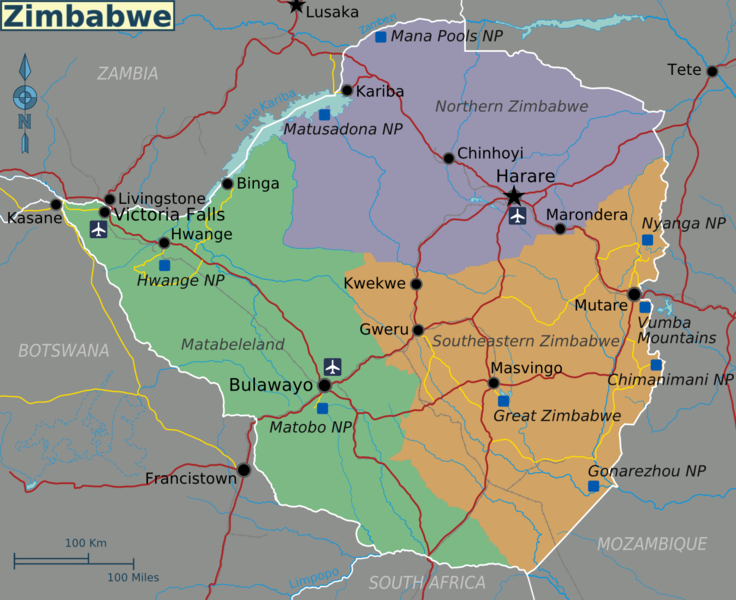
It always amazes me that old tribal clashed are still influencing the present.
It is truly horrifying to think that in this so called enlightened age that tribalism still plays such a large part in the affairs men. (and women)
"How will this play out?"
More bloodshed, sooner than later. No matter what scenario be played out it won't be good for the people.
I'm afraid I have to agree with you. With no free and fair elections it will be just more of the same.